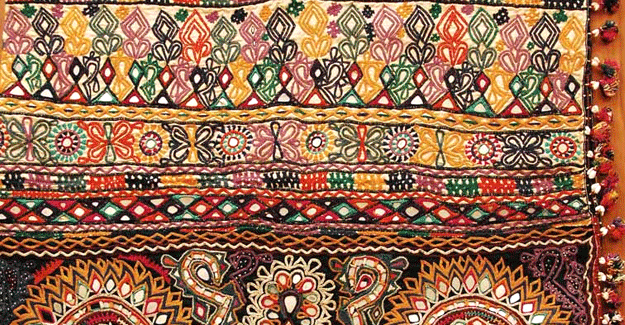
Textile Ministry All Set To Clean Augean Stables
The Union textile ministry is proactively formulating a package of measures in order to address the key issues faced by the textile industry. At present, the industry is struggling to cope up with multiple challenges that are adversely impacting the sector both on external and internal fronts. While exports of garments and other textile items are on the decline, the domestic production is struggling to produce competitively.
In fact, demonitisation followed by GST, has taken its toll on SMEs which are responsible for over 80 per cent of production across the value chain except in spinning. Post these two mega events, the industry is still undergoing a transition phase. It is demanding for relief under the GST regime and seeking refund of the accumulated input tax credit. The textile sector, which is not only facing trouble in the form of lower exports and higher imports, has sought higher rates of reimbursement under the duty drawback and refund of state levies (ROSL) following the implementation of the new GST regime. The industry has already seen escalation of cost and is asking the authorities to address the anomalies on a war footing.
“The industry is currently passing through a difficult period and the textile ministry has taken note of this scenario and is working closely with all stakeholders to resolve the issues proactively. The issues have already been taken with Union commerce ministry which has given all possible assurances to deal with the situation. They are deliberating on these issues and are expected to come up with a package which will not only clear the accumulated input tax credit outstanding but also device a mechanism to incentivize the industry adequately,” said Sanjay Jain, Chairman, Confederation of Indian Textile Industry (CITI).
“The industry is in a bad shape and any delay to deal with these issues will aggravate the situation. SMEs are the ones who are facing the brunt the most and since they are the ones who are the major contributors, the industry is very adversely impacted. There is need to come up with a concerted effort,” stated D K Nair, advisors to Clothing Manufacturers Association of India (CMAI).
As per the industry, apart from avoiding cost escalation, a timely refund could also avert high imports of fabrics and fall in capacity utilisation which could result in job losses. For instance, the weaving industry in Surat which houses around 650,000 powerlooms, is on the verge of closure as they are also finding it difficult to comply with the organised norms in the post demonitisation and GST regime.
Meanwhile, the textile industry representatives have asked the Union minister to discuss free trade agreement (FTA) possibilities with the commerce ministry to increase exports as a number of India’s competitors are enjoying duty-free trade with FTAs.
The latest round of FICCI’s Economic Outlook Survey puts forth the quarterly GDP growth forecast for Q4 2017-18 at 7.1 per cent; taking the full year growth estimate for 2017-18 to 6.6 per cent. The annual GDP growth for 2018-19 is projected at 7.4 per cent by the participating economist; with a minimum and maximum range of 6.9 per cent and 7.5 per cent, respectively. Industry and services sector are expected to grow by 6.7 per cent and 8.4 per cent, respectively in 2018-19. The survey was conducted during April-May 2018 and included economists from Industry, banking and financial services sector.
Some concerns are visible on external front with median current account deficit forecast pegged at 2.1% of GDP for 2018-19. The surge in oil prices has emerged as a major risk factor and can weigh down heavy on India’s external position and overall growth prospects. The weakening Rupee is further adding strain on the imports. In fact, the economists felt that the Rupee might continue to remain under pressure during the remaining part of the year. Foreign capital inflows are expected to face risks from tighter global liquidity conditions, introduction of long term capital gain tax and from other global financial developments such as correction in global stock markets and rise in US treasury yields.
The economists also shared their views on rising protectionist policies by some of the leading economies and its impact on India. They unanimously felt that the brewing trade war can impact India indirectly, if not directly, as the country is deeply integrated with global economy. The trade related tensions will further exacerbate geopolitical strains and could lead to a slowdown in growth of world trade. The economists believed that protectionist measures could undermine the multilateral trading system governed by WTO rules.
Most economists agreed that a vibrant manufacturing sector is needed to achieve impressive growth in GDP. It was felt that the sector, at present, is grappling with issues related to competitiveness which is contributing to lower exports as well as overall growth. While the government has taken steps to improve the business environment and removed several bottlenecks, the economists participating in the survey felt that a lot more needs to be done to increase the share of manufacturing in GDP.
They opined that a special focus must be provided to small and medium enterprises as they form the backbone of India’s manufacturing sector. The SMEs continue to be real job creators in India’s economy. Since they form such an important part of our country’s industrial structure, the economists suggested that processes for small and medium enterprises and start-ups must be further simplified. The participants also called for consistency in long term policy formulations to bring about stability which is conducive for investments.
Textile Excellence
If you wish to Subscribe to Textile Excellence Print Edition, kindly fill in the below form and we shall get back to you with details.












